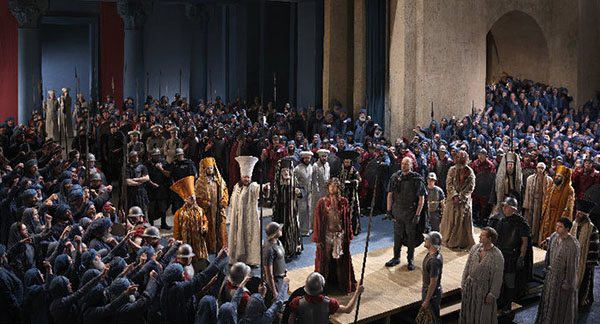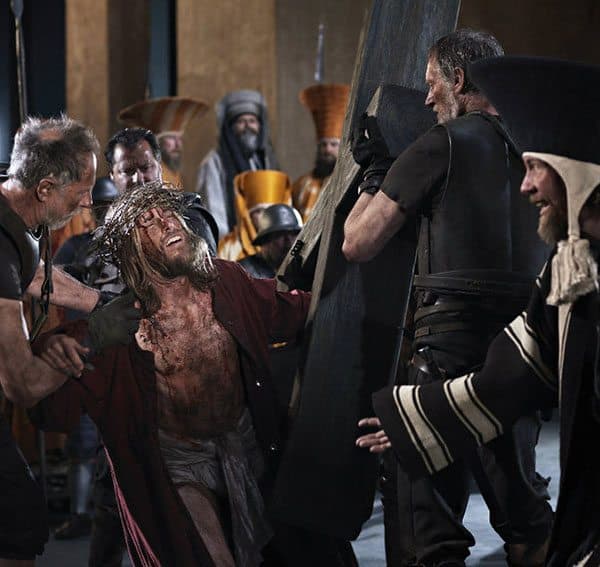It’s Easter time and all through the house children will be asking how bunnies lay eggs…
The meaning of Easter has been kneaded over years by traditions and celebrations dating back centuries, morphing into the crazy tradition we have in the western world of bunnies bringing chocolate eggs on Easter Sunday.

Here’s how it all began and some of the weird Easter celebrations around the world:
Easter in the Christian calendar falls at the time of Passover in the Jewish calendar, except for Christians, Jesus represented the sacrificial lamb slaughtered on Good Friday to atone for the sins of humankind (in place of the lamb that families would sacrifice) and rose from the dead three days later on Easter Sunday.
Nothing to do with chocolate or rabbits.
So where do the Easter bunnies and eggs come from?
Blame the Germans! In the 17th century the Germans arrived in Pennsylvania, USA with Easter tales of an egg-laying hare. Yes really. Apparently this mythical hare called osterhase made nests and laid colourful eggs.
Rabbits (or hares) are a symbol of spring and much breeding, as we well know. And of course in the northern hemisphere Easter is the beginning of spring when many cultures rip out their fertility symbols to bring them luck.
Over the years the colourful eggs became chocolate and the nests made for the bunny became Easter baskets that the children would collect their eggs in on the traditional Easter egg hunt in the garden.
Wacky Easter traditions around the world:
Dumping buckets of water: In many Eastern Europe countries the boys throw buckets of water over the girls. Why? I’m not sure. They reckon it harks back to pagan times. This happens on the Monday of Easter week. On Tuesday though – the girls return the favour! In many villages today the custom has evolved into being sprinkled with water instead of great sloshes.
Parades in Spain: It’d be worth being in Seville one Easter to position yourself for the best views of the parades that run all week and culminate on Good Friday with floats, costumes and effigies. You’ll need a nana nap in the afternoon because the processions start at midnight and run into the wee hours.
Fly a kite: In Bermuda they fly all sorts of homemade as well as incredibly elaborate kites after a British teacher once explained to his class Sunday School Jesus’ ascension into heaven.

Build an Easter fire: another tradition brought to the US by the Germans, this time to Texas. Children are told the Easter bunny lights the fires, which were originally started to act as a treaty between the Comanche Indians and the arrivals from the “mother land”.
The Passion Play: Oberammergau is on my Bucket List for the Passion Play that involves 2000 locals from the tiny town of Oberammergau in Bavaria, Germany. It is only put on once every ten years. Covid delayed the 2020 event, so it happened in 2022.
It originated in 1633 after the village was threatened by the plague but was miraculously spared while many thousands died in surrounding villages. The religious leaders in the town, nearly 400 years ago, wrote a play that depicts the Passion (the Easter story) and they vowed to put it on every 10 years.

They have only ever missed three and that was 1940 when the war broke out, and the performance in 1920 was postponed for two years due to the economic situation at the time, then Covid in 2020 which was only delayed a couple of years.
It lasts five hours (with a dinner break) and runs every day of the week between May and October. In 2010 they put on 102 performances depicting scenes from the Bible leading to Jesus’ death and resurrection.
Click here for more info – and to book for 2030!

And one more thing…
Why is it called GOOD Friday?
Good question! (See what I did?) Surely Bad Friday would be a better description of the torture and murder of Jesus? In fact the word ‘good’ is also translated as ‘holy’. The say is also known as Passion Friday.
Today, however, many Christians believe the word good is used because without Jesus being crucified, or sacrificed, on Friday there would be no redemption for mankind.
Maybe both are correct.
